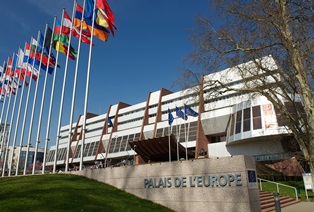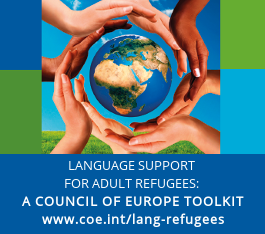The Council of Europe and language policy for migrants/refugees

For several decades one of the Council’s major education programmes has developed policy and guidelines to promote linguistic diversity and plurilingualism, and reference instruments to support policy and curricula planning in member states (www.coe.int/lang).
Linguistic Integration of Adult Migrants (LIAM)
The programme has also addressed the linguistic integration of adult migrants (LIAM). Migrants’ acquisition of competence in the language(s) of the host country is a focus for political debate and policy initiatives in a growing number of Council of Europe member states. The LIAM project (www.coe.int/lang-migrants) offers support to policy makers and practitioners who are working to facilitate migrants’ integration into civil society.
Language support for adult refugees: a Council of Europe toolkit
The Council of Europe has developed this toolkit to help volunteers and refugees in member states face the linguistic challenges caused by large-scale movements of refugees.
It was the first initiative of this kind at the European level at the time of its launch.



